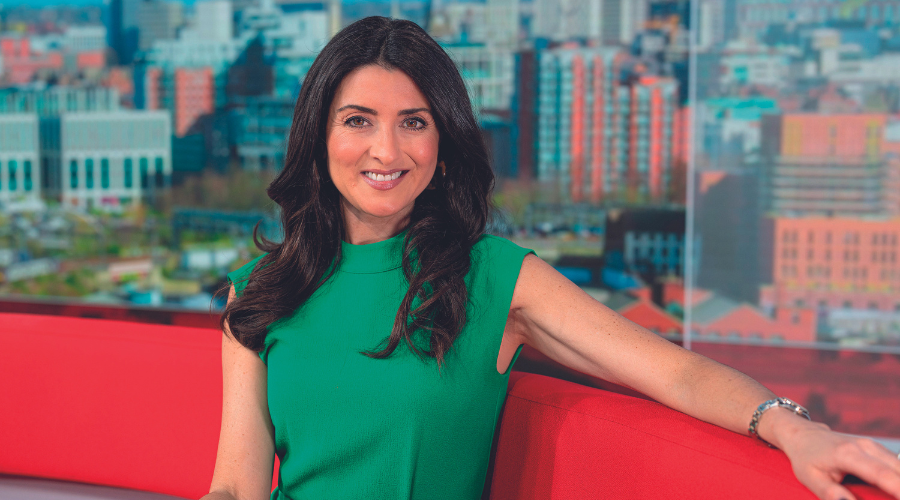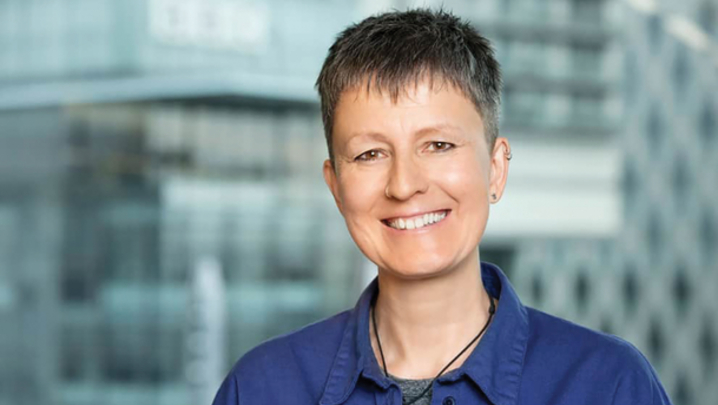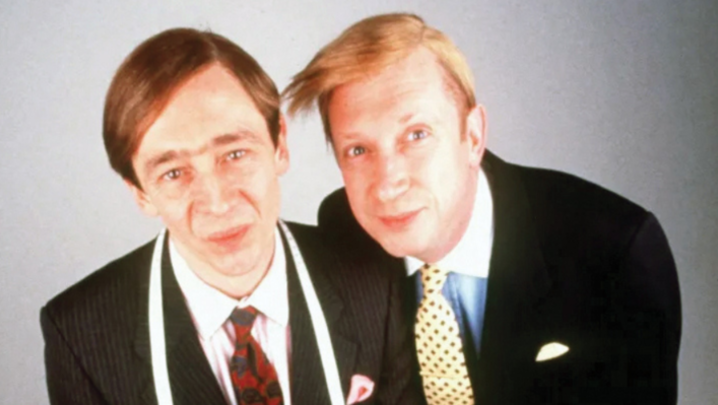Carole Solazzo hears Amy Garcia discuss a career that has taken her from kids’ TV to anchoring regional news
Anyone who has questioned the importance and relevance of regional news will have been conclusively set straight by presenter Amy Garcia.
The anchor of BBC Yorkshire’s flagship news show celebrated 10 years at Look North by speaking about her life and job to media and communications students at the University of Leeds.
“I started in kids’ TV at the age of 19, presenting CITV programme S Club TV,” she recalled. “That was my first experience in live TV, interviewing the big bands of the early noughties, like Atomic Kitten and Busted.”
From there she graduated to presenting travel and lifestyle programmes, but her passion was journalism. “At the age of 27, I signed up for an MA in TV journalism at Goldsmiths in London,” she said.
After qualifying, she applied for breakfast presenter cover at Look North. “I didn’t get the job but was offered a junior role to learn the ropes…. I felt I had to prove myself – I was working with journalists from newspapers and radio, so I worked twice as hard.”
Within weeks she was “given opportunities to go out and report, and was soon trained up to read shorter bulletins”. She ended: “The rest is history!”
One of Garcia’s first challenges as co-anchor, alongside the late broadcaster and “Yorkshire institution” Harry Gration, was “riding the Yorkshire stage of the Tour de France on a tandem. We had no idea how it would go down,” she admitted. “But we had rows upon rows of people lining the streets, ringing cow bells, cheering us on.”
Garcia described this as “what regional news is all about. That real sense of community… giving viewers a voice, something to celebrate where they’re from… telling the stories that matter.”
"Regional news offers a real sense of community"
Because of this approach, Garcia asserted: “There’s still a huge role for regional in the news agenda. A lot of the time, the national news outlets very much rely on us…. We’ve got the contacts. People are more comfortable telling their stories to us.”
Garcia has reported on tragedies such as the Huddersfield grooming scandal and murdered Yorkshire toddler Star Hobson. “You hear the real grim details that you can’t tell people on screen,” she said, adding that the team was offered counselling by the BBC. “Any story [of this kind], particularly involving children, we all struggle with.”
What has changed during Garcia’s 10-year tenure, however, is the way news stories are uncovered and reported, and the technology and skills she uses to bring them to air.
Priorities now are “deliver to online first, then television, then radio,” she said. “And last week our top story was filmed on a mobile phone. It’s called MoJo [mobile journalism] – using a mobile with a better microphone [and other kit] attached.”
Discussing opportunities for young entrants, she said: “We have a young ‘techie’ team and a dedicated social media team. We need young people to watch the programme, therefore we need young people to tell the stories they identify with.”
Things have changed for women at different life stages, too. “When I started at Look North there were no part-time presenters,” she said. “But when my son was born, I managed to go down to four days one week and three the next. That was quite new.
“Now I see women on screen getting older, as I’m getting older,” she continued. “Women on screen talking about menopause and the ageing process has broken down so many barriers.
“Will I still be here when I’m 70, like Harry?” she joked. “I hope I’ll be doing it as long as I want to, as long as I feel fresh and can still give something back”
The RTS Yorkshire/BBC Yorkshire event on 13 March was chaired by BBC Look North correspondent Emma Glasbey at the University of Leeds, and produced by Jane Hall.







